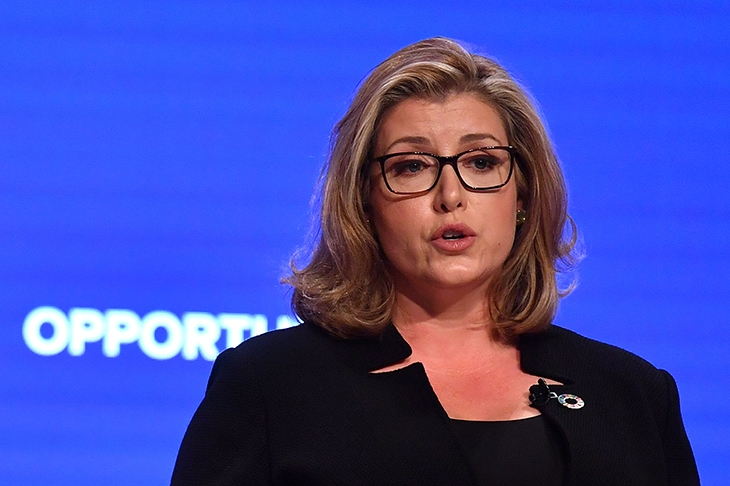Kenya
As the Union Flag was lowered during Kenya’s Uhuru ceremony in 1963, the Duke of Edinburgh turned to the country’s new leader, Jomo Kenyatta. ‘Are you sure you want to go through with this, old chap?’ History fails to record Jomo’s reply, but last week I asked my Nairobi lawyer, Mary, to look back on 55 years. What would Kenyans have preferred — wealth under Empire or liberty come what may? Quick as a flash Mary said: ‘Independence.’ I find Kenyans tend to sympathise with Britain’s countdown to its own Uhuru. Out here, where we have faced odd challenges, people are bemused by no-deal dystopian scenarios. A little rioting, a run on currency, traffic jams, parmigiano shortages, pet passport disruptions — no problem. Perhaps we could offer a Brexit East Africa safari package to help worried British people prepare for 29 March. Mainly, people I talk to are unclear how Brexit will affect Africa. That is partly because the UK itself appears not to know what new deal it wants. There’s talk of reinvigorating the Commonwealth and of trade dividends. Theresa May says she wants the UK to be Africa’s largest foreign investor by 2022. But today the UK’s relationship with Africa is still focused on aid, even though few believe in it anymore. International Development Secretary Penny Mordaunt recently acknowledged that current overseas aid spending — £14 billion per year — is ‘unsustainable’. Britons are entitled to question current aid spending when its goals seem so nebulous and its performance so poor. We see sex scandals at Oxfam, theft at the United Nations, jihadists diverting food meant for starving babies. I recently teamed up with Nick Daniels, a Nairobi-based development scholar. We both agree the aid budget should be sustained yet redirected towards driving enterprise to benefit both Africa and the UK. But overseas aid is simply not a priority for policy makers. We got a sense of this when we pitched a briefing paper on the subject to three UK think tanks. ‘We’re bound in tightly to our core agenda,’ was a typical response, indicating zero interest. ‘So little time in our calendar.’ People on the right misunderstand or distrust international development. Who can blame them, when the UK gives £186 million annually to Tanzania, which extorts foreign investors, attacks birth control and ‘hunts down’ homosexuals. Or donates £463 million to Pakistan, where Christians are murdered — or £161 million to South Sudan, where everybody gets murdered. Meanwhile British leftists hate private enterprise in Africa, which for them is an ideological Lego set rather than a real place. Capitalism exploits poor Africans, they believe, so UK investors in Africa are surely corrupt buccaneers deserving criminal investigation. British aid happily funds agencies to attack British companies. Decades ago, China saw Africa as an economic opportunity, not a basket case. Today it is embedded in Africa, investing in everything from railways to restaurants, motorbike dealerships to farming. To catch up will take the British decades, even if they possess the gumption, and even if the po-faced jobsworths at British embassies decide to be helpful. Is there any hope that the UK authorities will give British companies genuine support to expand in Africa? I would say right now that seems doubtful. Which is a pity. British enterprises in Africa are modern, forward-looking. They bring higher standards than say the Chinese, from the quality of their products, to customer services and labour conditions. They pay fairly, employ more women, respect human rights and they are less corrupt than most. In the leftists’ Lego set, creating jobs does not end poverty, sexual prejudice, female circumcision and child slavery. ‘Social justice’ is their solution, which involves attacking foreigners, the local rich and often elected rulers. They hate what globalisation means for Africa, because all trade exploits poor people for their primary resources — oil, tantalite, mangoes — unless it’s ‘fair trade’. Theirs is not an Africa of technology investments, modern commerce and service industries. Britain’s development nomenklatura at DFID still hog 75 per cent of the UK’s aid budget but it is not all bad news. Since 2017 the Commonwealth Development Corporation’s budget has been quadrupled. There’s still a long way to go. British aid cannot be ‘tied’ to giving UK companies contracts. That must surely change. The United States recently passed legislation promoting American business interests, allowing equity stakes, debt guarantees and riskier loans to investments in poor countries. Let’s hope future aid resources are focused on stimulating enterprise, because Africa and the UK will both benefit. Aidan Hartley
Aidan Hartley
Wild life | 7 February 2019
Aid resources could be shifted from DFID to driving private enterprise. We would all benefit

issue 09 February 2019





Comments